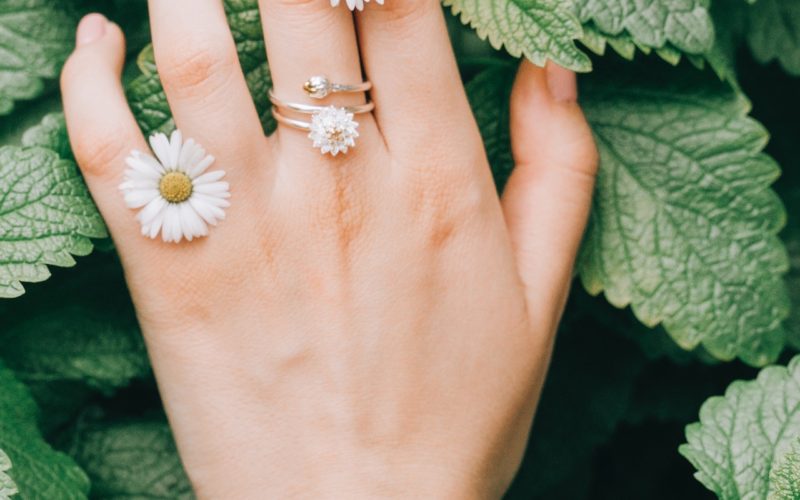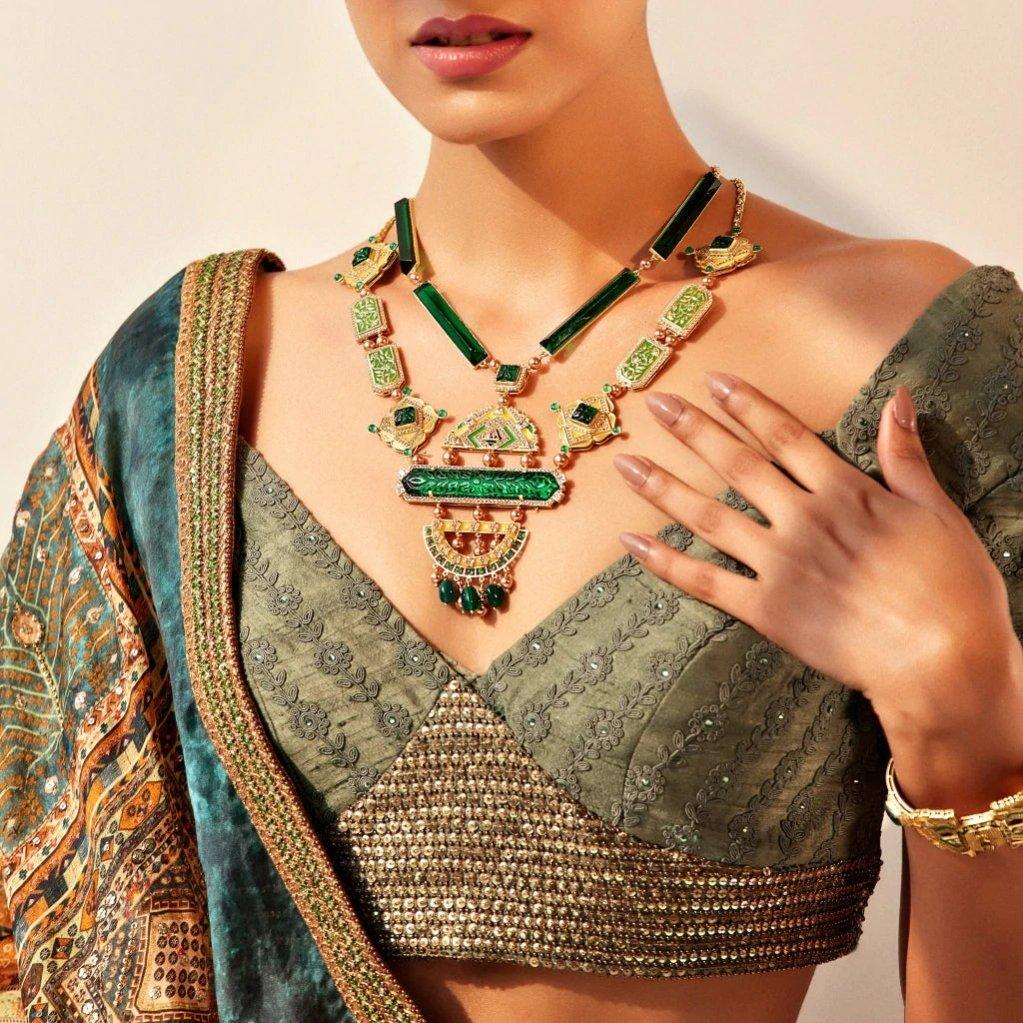Ethical jewelry is gaining increasing prominence as consumers become more aware of sustainability and fair labor practices.
This jewelry is crafted with a commitment to environmental and social responsibility, minimizing negative impacts on both people and the planet.
This article delves into the various facets of ethical jewelry, including its materials, production processes, and the reasons why it’s a compelling choice for conscious consumers.
What is Ethical Jewelry?
Ethical jewelry is produced adhering to strict social and environmental standards. This entails sourcing materials responsibly and ensuring fair treatment and wages for workers throughout the supply chain.
By minimizing environmental harm and promoting humane working conditions, ethical jewelry stands in stark contrast to the often problematic practices of the traditional jewelry industry.
Materials used for Ethical Jewelry
The selection of materials is pivotal in creating sustainable jewelry. Recycled gold and silver, derived from old jewelry or electronic waste, are commonly used.
These materials significantly reduce the demand for new mining, a process notorious for its environmental impact. Additional sustainable options include Fairtrade gold, lab-grown diamonds, and organic materials like wood and bamboo.
Manufacturing Processes and Certifications
Ethical jewelry production emphasizes sustainable and eco-friendly methods. Many manufacturers prioritize handcrafted techniques and avoid harmful chemicals.
Certifications like Fairtrade and the Responsible Jewellery Council (RJC) guarantee that the jewelry is produced under fair and environmentally sound conditions.
Benefits of Ethical Jewelry
Opting for ethical jewelry offers numerous advantages:
- Environmental Protection: By utilizing recycled materials and eco-friendly production methods, it reduces the ecological footprint.
- Fair Labor Practices: Ensures fair wages and humane working conditions for workers in the supply chain.
- Transparency: Certifications and transparent production processes provide consumers with confidence in the origin and production of their jewelry.
Challenges and Solutions
Despite its benefits, producing and selling ethical jewelry faces challenges. Sourcing recycled materials can be costly, and maintaining supply chain transparency is demanding.
However, many brands are actively addressing these issues through collaboration with suppliers and innovative solutions.
Tips for Buying Ethical Jewelry
When purchasing ethical jewelry, consumers should prioritize certifications like Fairtrade and RJC, which verify fair labor and environmental standards.
Understanding the manufacturing processes and the origin of materials is crucial. Buying from trusted retailers is also essential.
Designing your own jewelry
Engraving your own jewelry is set to become a major trend, as more individuals seek to infuse their accessories with personal meaning and uniqueness.
This customization allows for the creation of truly one-of-a-kind pieces that reflect personal stories, milestones, or even simple words of inspiration.
Thanks to your creativity and Vecieri jewelry configurator, you can create a personalized piece of jewelry just as special as you.
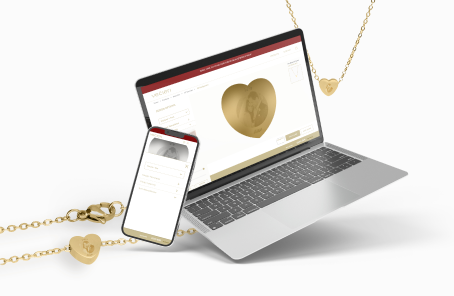
Here’s how to turn your favorite design into a lasting memory:
- Find Your Perfect Piece: Browse our collection and choose the necklace or bracelet that best suits his style.
- Pick Your Design: Choose among all the design options. It can be a picture, a message, or anything you’d like!!
- We Do the Magic: Our whiz-bang tech transforms your design into a high-quality engraving. No need to worry about fancy editing skills, we’ve got it covered.
See It Before You Get It: Before we engrave your masterpiece, you’ll get a preview to make sure everything looks perfect.
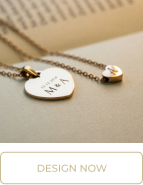
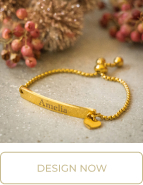
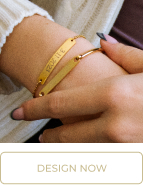
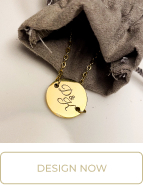
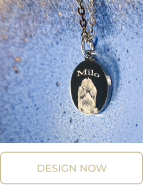
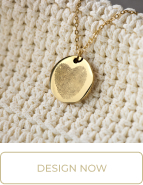
Engraving not only adds sentimental value but also transforms ordinary jewelry into heirlooms that can be cherished for generations. As consumers increasingly prioritize individuality in fashion, engraved jewelry offers a timeless and meaningful way to express one’s identity and style.
Whether it’s a special date, a loved one’s name, or a motivational mantra, engraving your jewelry adds a layer of personal
Conclusion
Ethical jewelry represents a conscious choice for environmentally aware consumers who value sustainability and fair labor practices.
By utilizing recycled materials and eco-friendly production methods, it helps minimize the negative impacts of the traditional jewelry industry. The growing market for ethical jewelry indicates a rising consumer awareness and a desire for a better future.
Frequently Asked Questions (FAQs)
- What is ethical jewelry? Ethical jewelry is crafted with a commitment to social and environmental responsibility.
- Why is recycled gold environmentally friendly? Recycled gold reduces the need for new mining, which has significant environmental consequences.
- What are the benefits of synthetic diamonds? Synthetic diamonds offer an ethical alternative to mined diamonds, avoiding associated social and environmental issues.
- Which brands offer ethical jewelry? Several brands prioritize ethical practices, including [insert specific brands here].
- How can I identify ethical jewelry? Look for certifications like Fairtrade and RJC, and research the brand’s commitment to sustainability.
- Is ethical jewelry more expensive? Often, yes, due to the higher costs associated with sustainable materials and fair labor practices.
- Why is supply chain transparency important? Transparency ensures that ethical standards are upheld throughout the production process.
- What materials are used in ethical jewelry? Recycled gold and silver, Fairtrade gold, lab-grown diamonds, and organic materials are common choices.
- How can I ensure my jewelry is ethically sourced? Research the brand, look for certifications, and consider purchasing from trusted retailers.
- What are the benefits of Fairtrade jewelry? Fairtrade jewelry supports fair wages, safe working conditions, and community development.
- Can I find ethical jewelry online? Yes, many online retailers offer a variety of ethical jewelry options.
- What does RJC certification mean? The RJC certification guarantees adherence to strict social and environmental standards throughout the jewelry supply chain.
- How should I care for ethical jewelry? Proper care extends the life of your jewelry. Use gentle cleaning methods and avoid harsh chemicals.
- Is ethical jewelry available for all occasions? Yes, ethical jewelry is offered in a wide range of styles to suit various occasions.
- What are the current trends in ethical jewelry? Minimalist designs, personalized pieces, and jewelry with recycled metals are popular trends.
